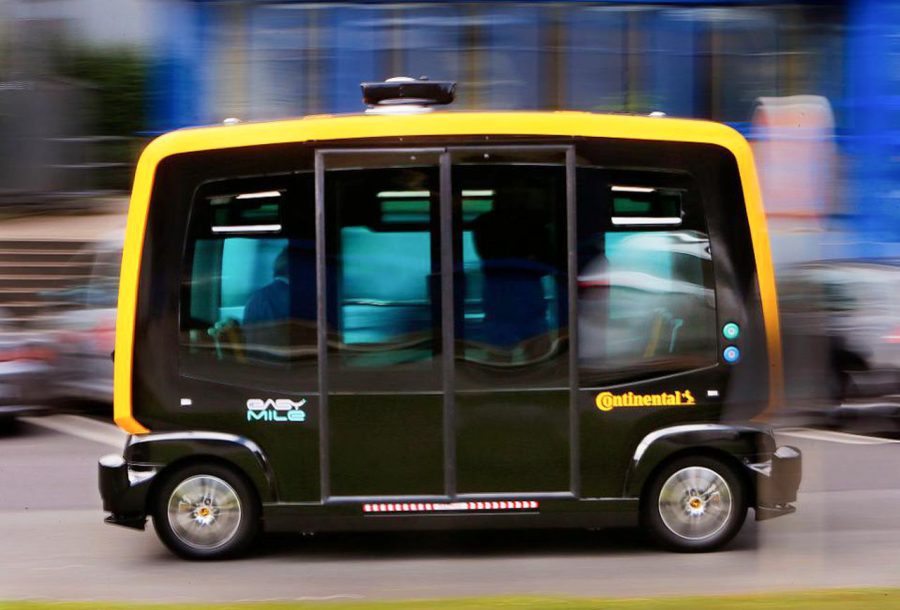Autonomous shuttle to run on campus for six months
Oakland University will partner with EasyMile, Continental and the city of Auburn Hills to host an autonomous shuttle on campus. The self-driving bus will run for six months.
The future is coming, and it’s riding on the bus.
Oakland University, in partnership with EasyMile, Continental and the city of Auburn Hills, will be hosting an autonomous bus. Coming from the EasyMile fleet, the autonomous shuttle will run on campus for six months once it is cleared to run by the School of Engineering and Computer Science (SECS).
According to SECS Dean Louay Chamra, EasyMile will be using OU as a real-life lab as part of a $103,600 PlanetM pilot grant.
“This autonomous bus will be running in a controlled environment,” Chamra said. “And the best way to utilize [OU as a controlled environment] is to use the same route as [the Bear Bus] that we have over here to give the students an opportunity to actually experience going into that bus.”
According to Chamra, the EasyMile bus would be the first shuttle on campus to operate without a steering wheel. However, despite the lack of a wheel, the dean said students have no reason to fear the futuristic transporter.
“Now, a student on board of the bus will be hired as a safety coordinator in case of emergency or in case they need to react, but nobody will be driving that bus,” Chamra said. “The way EasyMile designed that bus is so they have redundancy in terms of the safety, so there are multiple ways to stop it and to make sure that nobody gets hurt or to not run over any animals. So bottom line — it is a very safe bus.”
While the bus is at OU, it will be collecting data for the companies involved in the project. Continental will have an involved role in monitoring the bus and collecting rider feedback.
Chamra said he would like SECS to work with the Bear Bus and Oakland University Student Congress to figure out how to best implement the EasyMile bus and get student feedback in the best way possible. The bus will be free to ride, a testament to its role as an experimental program rather than a revenue-generating service.
With this pilot program, the future of mass transit will be on active display at OU. Despite only having a capacity between 10–15 people and a maximum speed of 25 mph, the data that can be collected will be critical for the development of larger autonomous buses.
Therefore, it seemed fitting that a city that uses bus transit like Auburn Hills would be a partner.
“[Auburn Hills’] commitment to the grant is basically in-kind services for the design and installation of signage to support the project,” Donald Grice, Auburn Hills assistant city manager, said.
The signage varies from standard bus stop signs to “landmark” reference signs that help the bus navigate through the streets of OU.
While Grice said Auburn Hills does not have any immediate plans regarding autonomous public transport, having up-to-date information on the vehicles allows the city to better prepare for the autonomous arrival.
“One of the biggest hurdles I think we are going to have for autonomous vehicles is they are probably more ready than society is,” Grice said. “I think getting society comfortable with the idea of having these autonomous vehicles on our roadways is a very important part of [coming to] full acceptance of these vehicles at some point.”











Lisa • Oct 6, 2019 at 3:31 PM
Where is the Shuttle? The school year has started, but it’s not on campus.